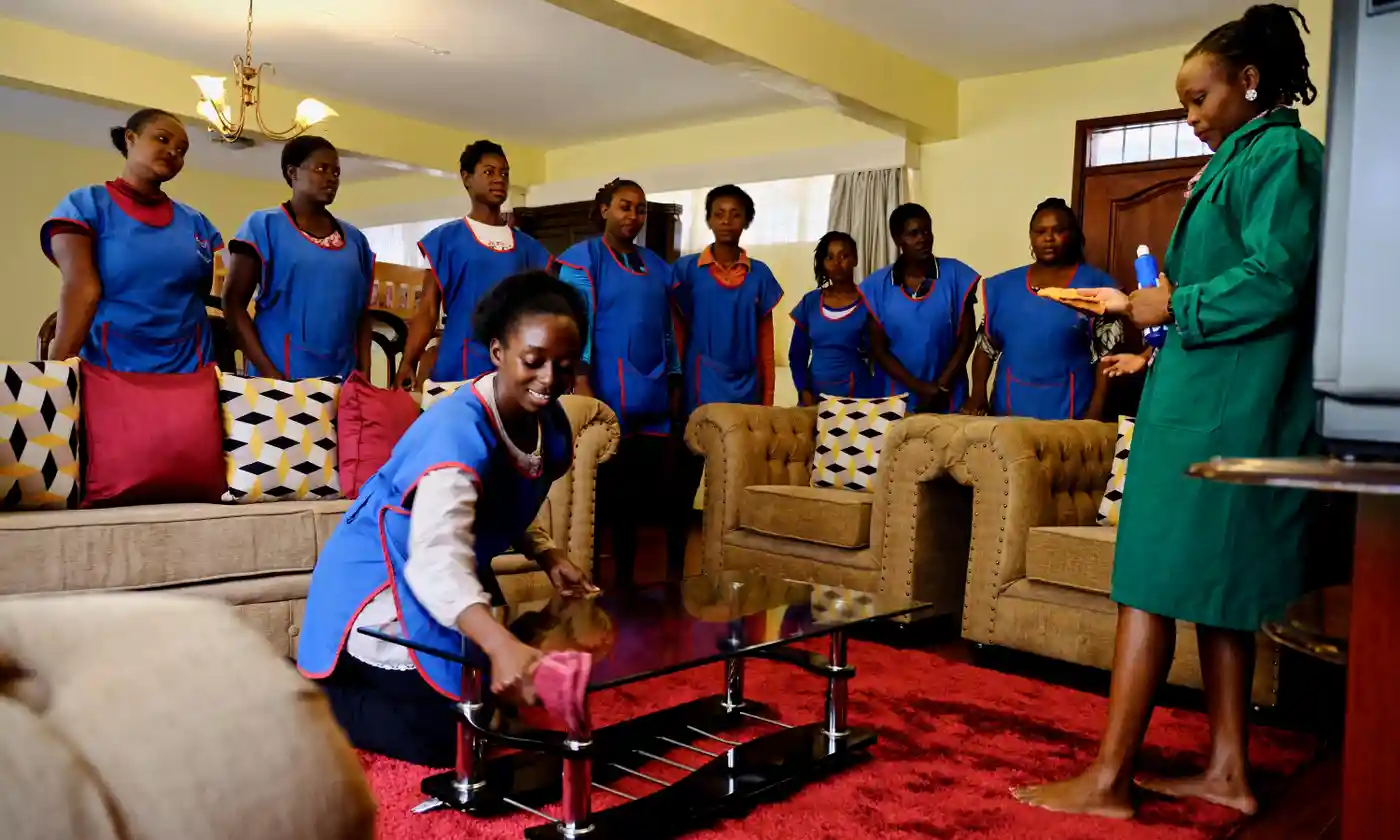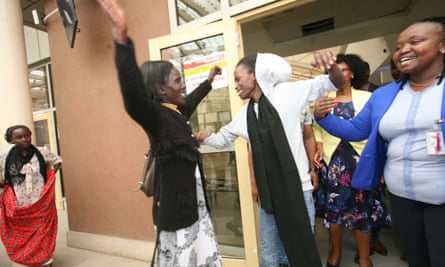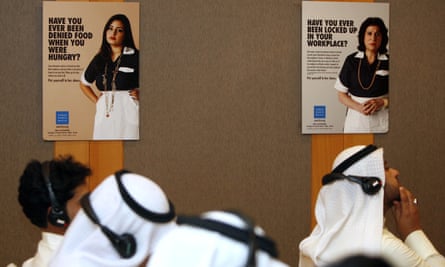
‘Modern-day slavery’: Kenyan domestic workers tell of abuse in Saudi Arabia
When Joy Simiyu left Kenya for a new job as a domestic worker in Saudi Arabia, she believed her life was about to take a turn for the better. While the 25-year-old had never envisioned herself making a living through housework, her dreams had grown distant after she dropped out of college due to financial pressure.
“I was desperate for a job,” said Simiyu, one of a growing number of Kenyans who travel to the Gulf to seek work, pushed out by the country’s high unemployment rates.
But within months, Simiyu was back in Kenya, with a harrowing but familiar tale of employer abuse, cautioning others against travelling to Saudi Arabia for work.
Saudi Arabia is known for its poor labour and human rights record, and is widely considered one of the most dangerous places to work in the world. Employers in the Gulf state have been dogged by allegations of physically, mentally and sexually abusing their migrant housekeepers for years; claims which continue to resurface.
In Kenya, reports of abuse sparked fresh outrage earlier this month when online photos of a young Saudi-based Kenyan worker, Diana Chepkemoi, looking frail went viral, along with claims that she was facing employer abuse and neglect. Under growing pressure from the public, the government repatriated her and a few other domestic workers facing a similar plight in the Gulf state, including Simiyu.

Simiyu says that she faced a torrent of abuse while in Saudi Arabia – that she was forced to work in multiple homes, and deprived of food and rest. She also claims her employer would withhold her wages, claiming that she was “not doing enough work to demand pay”, or that she would be paid in due course since “she was not going nowhere”.
“It’s modern-day slavery,” said Fred Ojiro of Haki Africa, a Mombasa-based human rights organisation that advocates for the rights of workers across the continent.
Until just a few years ago, Saudi Arabia’s kafala system required housekeepers to gain permission from their employer if they wanted to change jobs or leave the country. Rights groups say this policy left them vulnerable to abuse.
This year alone, Haki Africa has received more than 51 complaints of abuse from Kenyan domestic workers based in Saudi Arabia, several videos of distressed women asking for help, and at least 10 new calls for help after reports of abuse resurfaced in September.
The Gulf is plagued by complaints of mistreatment of its domestic workforce, with estimates by the International Trade Union Confederation showing that more than 2.1 million women employed in households across the region are at risk of exploitation.

At the height of the abuse, Simiyu says she escaped the house she was working in and went to the agency that had recruited her, requesting to be transferred to another household. The agency promised to get her work in two days, but that stretched into weeks, and many other women had been waiting much longer.
She alleges that agency officials would lock them in a hostel, with only one meal a day, and hound them for sex in exchange for a new assignment. It was only after Simiyu and a few other women escaped the hostel and publicly resisted agency officials’ efforts at a forced return that the women were taken to the Kenyan embassy in Saudi Arabia, which facilitated their return.
Simiyu considers herself fortunate to have made it back home. At least 89 Kenyans, most of whom were domestic workers, died in Saudi Arabia between 2020 and 2021, according to a report by Kenya’s ministry of foreign affairs presented to the national assembly late last year. Saudi Arabia attributed these deaths to “cardiac arrest”.
Faced with these grim statistics, the foreign affairs ministry proposed a ban on the deployment of Kenyan domestic workers to Saudi Arabia until protection measures were taken. But Kenya’s cabinet secretary for labour, Simon Chelugui, rejected those calls, saying that hundreds of thousands of Kenyans were employed there under “favourable conditions”.
Countries like Uganda and the Philippines have previously halted deployment of their domestic workers to Saudi Arabia over widespread reports of abuse, but later lifted the bans. Like Kenya, both countries receive significant remittances from their citizens working in Saudi Arabia.
The Gulf is the third-largest source of diaspora remittances for Kenya, and payments have doubled over the last two years, making a sustained ban on the export of labour unlikely.

“The response of the government has been poor at best,” said Hussein Khalid, executive director of Haki Africa. “It’s not what you would expect from a government when its citizens are in distress.”
The government has taken some measures to mitigate the abuse, such as vetting domestic worker-recruitment agencies, listing the accredited ones on its website, and requiring them to pay a security bond that can be used to repatriate Kenyan workers facing distress.
Women who go to Saudi Arabia through unregistered agencies often face heightened risk of abuse and unethical practices, with rights groups reporting that some workers sign contracts in Arabic, with no understanding of the language. Ojiro likens the rogue agencies to human traffickers.
The government has also signed bilateral labour agreements with Saudi Arabia, and set up a distress reporting portal. But the content of the agreements is not public and at the time of publication, the portal could not be accessed.
Faced with growing pressure, Saudi Arabia also implemented some measures to protect domestic workers, including reforms to the kafala system and the introduction of a wage protection programme. In a statement to the Guardian, Chelugui said that the government was satisfied with the measures taken by Saudi Arabia to protect Kenya’s workers.
But as claims of pay abuse and the forcible detainment of Kenyan domestic workers in the Gulf state persist, rights groups say that much more needs to be done.
